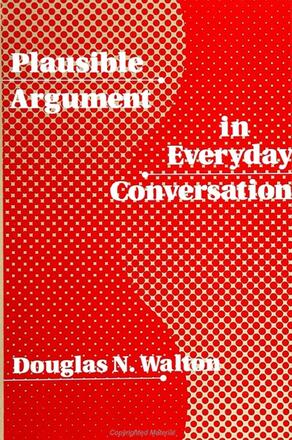
Plausible Argument in Everyday Conversation
Alternative formats available from:
Description
This book provides a practical and accessible way of evaluating good and bad arguments used in everyday conversations by applying normative models of dialectical (interactive) argumentation, where two parties reason together in an orderly and cooperative way. Using case studies, the author analyzes correct and incorrect uses of argumentation on controversial issues that engage the reader's interest while illustrating points in a practical way. Walton gives clear explanations of the most common errors and tricky deceptions — traditionally called "fallacies" — that can trip up an unwary arguer.
Douglas N. Walton is Professor of Philosophy at the University of Winnipeg, Manitoba, Canada.
Reviews
"Walton has done an excellent job of placing argument in the context of dialogue and relating it to other concepts that are significant determinants of the adequacy of both the process by which conclusions involving disputed issues are reached and the conclusions themselves. He provides a truly comprehensive examination of what has come to be called 'practical argument. ' The book is an intellectually rich exploration of the many facets of this important topic. The author carefully articulates his reservations concerning past treatments of practical argument and then demonstrates how the view he espouses overcomes many of the deficiencies noted. " — Dennis S. Gouran, Pennsylvania State University